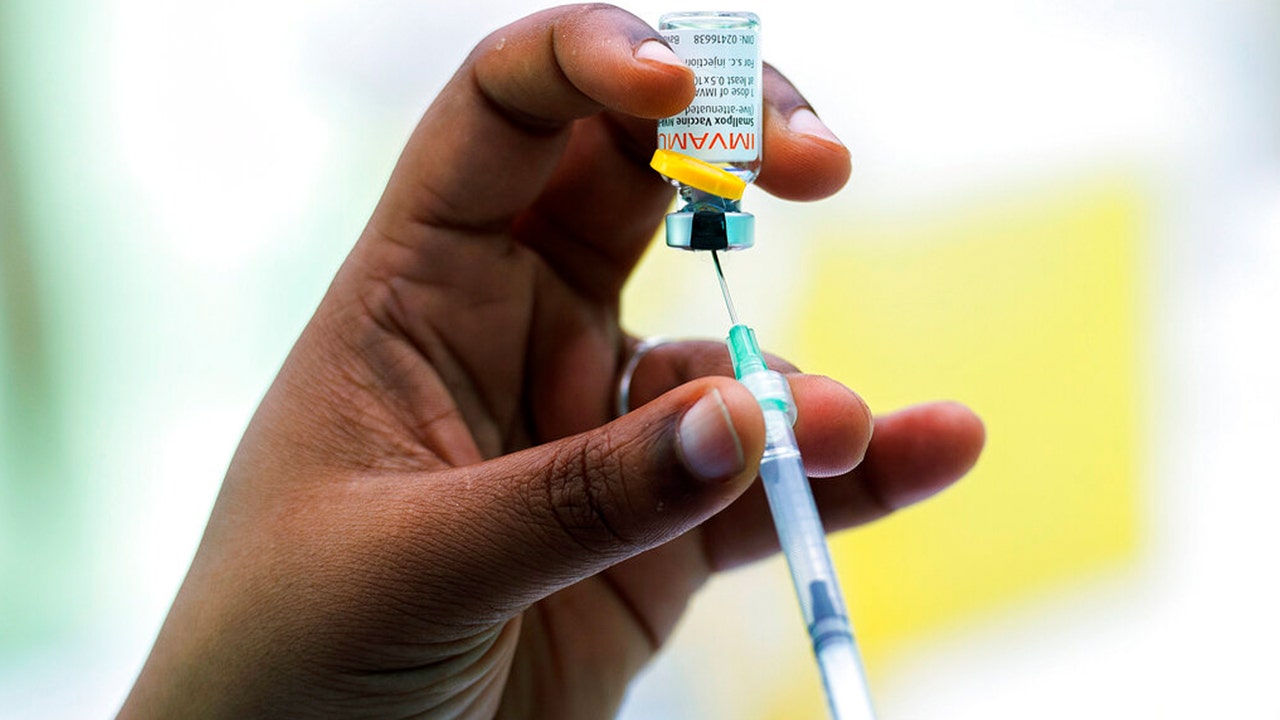Is There A Vaccine For Monkeypox

The emergence of monkeypox as a global health concern has prompted an urgent quest for effective preventive measures, including vaccines. Monkeypox, a zoonotic viral disease, has been endemic in certain parts of Africa for decades but has recently spread to other continents, raising alarms about its potential to become a widespread health issue. The development and deployment of vaccines are critical in controlling the spread of infectious diseases, and in the case of monkeypox, several vaccines have been identified or are under development as potential tools for prevention.
Understanding Monkeypox and the Need for Vaccination

Monkeypox is caused by the monkeypox virus, which belongs to the Orthopoxvirus genus. This genus also includes the variola virus, which causes smallpox, and the cowpox virus. The disease manifests with symptoms such as fever, headache, muscle aches, swollen lymph nodes, and a rash that can resemble the rash of smallpox. Given its similarity to smallpox and the potential for severe illness, especially in immunocompromised individuals, the development of effective vaccines is a priority.
Vaccines Available for Monkeypox
Several vaccines have been developed or repurposed for the prevention of monkeypox, leveraging knowledge from smallpox vaccine development due to the viruses’ genetic similarity. One of the most notable vaccines is the JYNNEOS vaccine (also known as Imvanex in some countries), which is a live, attenuated vaccine specifically designed to protect against smallpox and monkeypox. This vaccine has been approved by regulatory authorities in the United States and Europe for the prevention of smallpox and monkeypox.
| Vaccine Type | Manufacturer | Approval Status |
|---|---|---|
| JYNNEOS/Imvanex | Bavarian Nordic | Approved in the US and Europe |
| ACAM2000 | Emergent BioSolutions | Approved in the US for smallpox, used off-label for monkeypox |

Another vaccine, ACAM2000, is also used for the prevention of smallpox and has been used off-label for monkeypox. However, it's associated with more side effects compared to JYNNEOS/Imvanex and is not recommended for certain populations, including those with weakened immune systems or heart conditions.
Challenges and Future Directions

Despite the availability of vaccines, several challenges remain, including production capacity, distribution logistics, and ensuring equitable access globally. The demand for monkeypox vaccines has surged in response to the recent outbreaks, straining supply chains and highlighting the need for increased production and strategic allocation of available doses.
Further research is also needed to fully understand the efficacy, safety, and optimal use of these vaccines in different populations, including those with underlying health conditions or taking immunosuppressive therapies. Additionally, the development of new vaccines or therapeutic agents could provide more options for prevention and treatment, potentially offering improved safety profiles or easier administration methods.
Key Points
- The JYNNEOS/Imvanex vaccine is specifically approved for the prevention of smallpox and monkeypox, offering a targeted approach to vaccination.
- ACAM2000, while effective, comes with a higher risk of side effects and is used off-label for monkeypox, emphasizing the need for careful consideration in its use.
- Global access to vaccines, particularly in underserved or resource-limited settings, is crucial for controlling the spread of monkeypox and requires concerted efforts from health organizations, governments, and vaccine manufacturers.
- Ongoing research into the efficacy, safety, and optimal use of available vaccines, as well as the development of new preventive and therapeutic measures, is essential for addressing the evolving landscape of monkeypox outbreaks.
- Public health strategies, including vaccination campaigns, contact tracing, and education on preventive measures, play a vital role in mitigating the impact of monkeypox and must be tailored to the needs of specific communities and regions.
FAQs on Monkeypox Vaccination
Who should receive the monkeypox vaccine?
+Vaccination is recommended for individuals at high risk of exposure, including healthcare workers, laboratory personnel, and those who have been in close contact with someone diagnosed with monkeypox. In areas with ongoing transmission, vaccines may also be offered to individuals at higher risk of severe disease or those in occupational settings where exposure risk is increased.
How effective are the available vaccines against monkeypox?
+Studies and historical data suggest that vaccines developed for smallpox are about 85% effective in preventing monkeypox, given the close genetic relationship between the viruses. However, the actual effectiveness can depend on several factors, including the specific vaccine used, the timing of vaccination relative to exposure, and individual immune response.
Are there any side effects associated with the monkeypox vaccine?
+Like all vaccines, those for monkeypox can cause side effects, which are typically mild and transient. Common side effects include pain, redness, or swelling at the injection site, as well as fatigue, headache, or muscle aches. More serious side effects are rare but can include allergic reactions or, in the case of certain vaccines like ACAM2000, more significant health issues due to its live, replicating nature.
In conclusion, while vaccines for monkeypox are available and offer a critical tool in the prevention and control of the disease, their effective deployment and equitable access remain significant challenges. Ongoing research, global coordination, and public health efforts are essential for mitigating the impact of monkeypox and preparing for future outbreaks. As the situation continues to evolve, staying informed about the latest developments in vaccine research, distribution, and public health strategies is crucial for both individuals and communities at risk.



